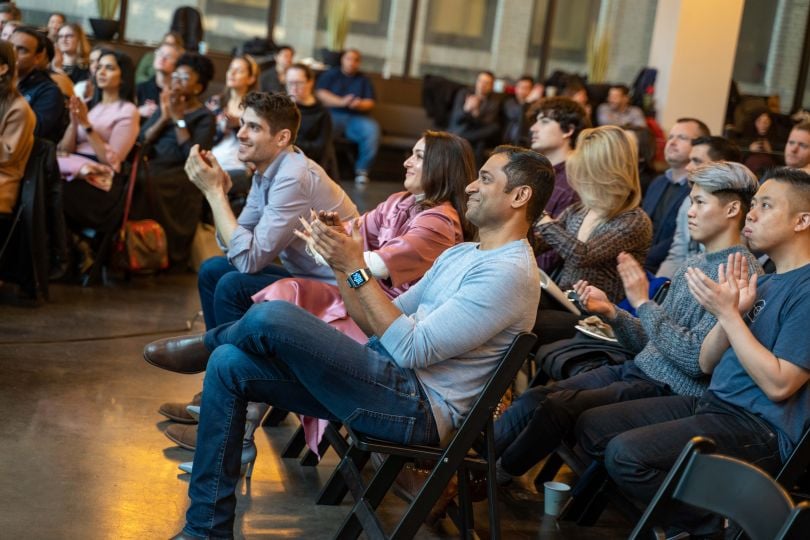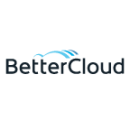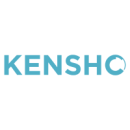
“You don’t know what people are made of when things are going well.”
This is a lesson that Orchard CEO Court Cunningham has always known to be true, but is seeing play out first-hand this year, as things are certainly not going well in the housing market. Though the real estate company has actually experienced increased consumer demand, it was forced to adjust onboarding procedures, rethink internal communication and prepare for growth at an unexpected scale.
While automation and organization aid in such drastic shifts, it’s individual team members who ultimately dictate the success of a business’s response to external factors like a pandemic.
As 2020 wraps up, New York-based leaders walk us through the ups and downs that accompany a series of new challenges. At Via, Bluecore, Stash, Kensho and BetterCloud, tech teams have shifted launch plans, product teams have pivoted service offerings and people teams have deepened a commitment to company culture.
“I think the success we’ve seen in adapting to 2020 will make us far more willing to push the envelope in terms of trying creative solutions that might have seemed crazy or too hard previously,” Via CEO Chris Snyder said.
At BetterCloud, CFO Bart Hacking was worried about losing a full day at their planned company offsite due to the virtual nature of this year’s meeting. But to his surprise, around 30 people joined the Zoom for some smooth-sailing, broad strategic planning. In addition to team member dedication, Hacking attributes the remote success to ongoing preparation and early alignment regarding key insights.
What’s your proudest achievement of 2020? What about it makes you and your team so proud?
Our greatest achievement of 2020 was making a seamless switch to a fully-distributed workforce and still producing great outcomes on time and of high quality. For example, we had our largest equity financing to date and launched a brand new SaaS app security product, Discover. None of this would have been possible without being cloud-based long before our industry felt the impact of COVID-19.
What was the biggest challenge of 2020 for your company, and what did your team do to overcome this challenge?
Our greatest challenge of 2020 has been finding new ways to promote communication, interconnectedness and support for our fellow teammates. Since March, we have held two all-hands meetings every week to make sure the company is aware of business performance and key developments. We also celebrate standout performances. Even before COVID-19, one of our four values was “in this together.” We relied upon this core value even more intently in 2020 to be successful and support one another.
What’s the most important lesson you learned in 2020, and how will you carry that lesson with you into 2021?
The first important lesson was that we can be successful in a distributed work model. We’ve long encouraged in-office work to promote innovation and camaraderie. There are headwinds in a distributed work model. But we’ve learned that through frequent, deliberate communication along with activities like scheduled lunch-and-learns, we can recreate that innovation and camaraderie. It is opening our minds to broadening to new markets beyond the three we are in today.
The second important lesson for us was that we can be as — if not more — successful at promoting alignment through planning than we expected. Previously, we harnessed the traditional offsite meeting to develop a three-year strategic plan. We worried that codifying a long-term plan via Zoom would render such an exercise mostly useless. On the contrary, we exited with greater clarity on alignment and priorities than in all years prior. The key to success was being extremely prepared as a group in advance. We invested months making sure that we had alignment on the facts related to our business. We will continue to harness these lessons learned long after it’s safe for such planning to happen face to face.
In the last three years, the Orchard team has, among other things, vertically integrated real estate brokerage, title and mortgage into one place. It’s a task that CEO Court Cunningham said he’s found difficult but also “intrinsically satisfying.” While the pandemic brought with it historically-low interest rates, it also demanded that the real estate company scale its business much more significantly than it would have ever expected just a year ago.
What’s your proudest achievement of 2020? What about it makes you and your team so proud?
We founded Orchard in 2017 to transform the way people buy and sell their homes through our Move First offering, based on a buy-before-you-sell model. After enabling the customer to move into their new home, Orchard sells their old home at top dollar.
In 2020, we launched the Orchard dashboard, a digital platform that enables a homeowner to manage their entire real estate transaction from search to close, all in one place.
We also introduced our mortgage offering, Orchard Home Loans, which, when coupled with our in-house title offering, gives customers a true one-stop-shop for home buying and selling. Vertically integrating three businesses (real estate brokerage, title and mortgage) and building a tech backbone to seamlessly coordinate everything is hard. It took us three years. Accomplishing difficult goals is intrinsically satisfying.
What was the biggest challenge of 2020 for your company, and what did your team do to overcome this challenge?
It turned out that COVID-19 was a tailwind to our business, as record-low interest rates drove home buyers into the market in huge numbers. But with that demand, came faster than expected growth. Growing a business more than three times in a year, while simultaneously building the technical backbone to manage customer transactions was extraordinarily challenging. We had to scale up manual processes and quickly replace them with automated ones in dozens of places across our product offerings.
Onboarding new hires remotely is also a challenge. We’ve onboarded more people remotely than we did pre-COVID-19. Our people team took some creative steps to make a positive impact on our employees. Among these were our summer school sessions, a series of employee-led optional classes on a variety of topics to give employees a chance to learn from one another and connect over Zoom.
What’s the most important lesson you learned in 2020, and how will you carry that lesson with you into 2021?
Teamwork is everything. While I have known this for a while, seeing our team step up and lead at all levels through the pandemic and the rapid growth we have experienced has been amazing to watch.
You don’t know what people are made of when things are going well. Our values of “find a way” and “own it” shone brightly in our leaders this year. Hiring the best people is always the best path to growing a business.
When the Via team launched their ridesharing service in Wilson, N.C., meeting with local riders was a bit more complicated than hitting the “launch meeting” button on Zoom. Because many riders were not digitally connected, Via CEO Chris Snyder said his team tapped into local networks like housing authorities, health centers and the local library to hold smaller sessions with their staff and constituents. With this experience under his belt, Snyder feels even more confident relying on unconventional solutions in the years to come.
What’s your proudest achievement of 2020? What about it makes you and your team so proud?
My team is responsible for planning, implementing and launching all of our new on-demand transit partnerships around the world. Two or three weeks before a new service launches, we typically travel to meet with our partner for pre-launch training and testing sessions. This includes field testing with real vehicles and drivers to make sure that everything works perfectly, which requires a high level of coordination between the tester and remote engineering teams.
Once the lockdowns began, it became clear that we’d immediately need to conduct everything remotely. The team leaned into this challenge, developing an ingenious way to combine multiple live-video feeds with a fully virtual partner training in our field testing methodology. This creative spirit enabled us to keep moving amid an extremely challenging moment for public transportation, while allowing us to radically scale how many services we could launch. Between Q1 and Q3 in 2020, we tripled the number of weekly launches.
What was the biggest challenge of 2020 for your company, and what did your team do to overcome this challenge?
Bridging the virtual divide was a major challenge for us this year. Our business develops public transit technology, and transit is always incredibly local. That means a key task leading up to a launch is to help our partners engage and educate their riders, teaching them how to use the new digital public transit service. Typically we’d hold a number of town hall meetings, but these were off the table during the pandemic. So we got creative.
When launching in Wilson, N.C., it was important to connect with riders because the new Via-powered service was replacing a number of bus routes. However, not only could we not hold in-person town halls, a large portion of riders were not digitally connected. So we worked with the city to tap into local networks like housing authorities, health centers, the local library — you name it — to hold smaller sessions with their staff and constituents. The result proved effective in educating riders about the service. It was incredibly high-touch but absolutely worth it, given the results.
What’s the most important lesson you learned in 2020, and how will you carry that lesson with you into 2021?
Reflecting back on 2020, I think the biggest takeaway for me is that great teams are capable of amazing levels of resilience and adaptation. Yes, adversity can draw out the best in us. But more importantly, it can reveal strengths and capabilities that remain hidden during “normal” times.
I think the success we’ve seen in adapting to 2020 will make us far more willing to push the envelope in terms of trying creative solutions that might have seemed crazy or too hard previously. Especially in the context of a return to in-person collaboration, that feels both exciting and energizing.
Adaptability has been key for Kensho in 2020. While the AI-based company is data-driven to its core, team members have had to exercise flexibility in terms of knowing when to prioritize work versus mental well-being. Chief Technology Officer Melissa Whitehead said that although the remote setup might not last long, culture-based initiatives like awareness groups are here to stay.
What’s your proudest achievement of 2020? What about it makes you and your team so proud?
I am very proud of our team meeting a beta milestone of our flagship document exploration tool, Codex, as well as the first direct client sale of our speech-to-text transcription software. We achieved these two big, end-to-end milestones after our acquisition by SPGI in early 2018.
What was the biggest challenge of 2020 for your company, and what did your team do to overcome this challenge?
It’s not a new challenge for tech companies, but balancing the speed of delivery with the quality of the product is a constant exercise. Our approach to sustainable solutions has been to create a highly-leveraged platform with supporting tooling to enable each experiment, stage deployment and release to the production platform. Our DevOps practices bake in expectations for smoke testing and security checks using consistent tooling such that each product release follows a familiar playbook.
What’s the most important lesson you learned in 2020, and how will you carry that lesson with you into 2021?
While not so much a new lesson, this year reinforced how important it is to be adaptable as a company. We have increased focus on our team’s well-being and remote work support in addition to creating a team empowered to advance our diversity, equity and inclusion goals and hold leadership accountable.
Our parent company, S&P Global, has led the charge in putting people first by establishing awareness groups, focused sessions and extending wellness resources. Even as we hope to return to some semblance of normalcy in 2021, we will continue to keep our team’s well-being a top priority.
This year, the Bluecore team emphasized focusing on those things that were in their control. In doing so, they were able to gain clarity surrounding what customers want most from the AI marketing company, as well as how to communicate internally. CEO Fayez Mohamood said the pandemic has really shifted his perspective on what matters most, both in business and in life.
What’s your proudest achievement of 2020? What about it makes you and your team so proud?
We are focused purely on retail and e-commerce. Given that a majority of offline retail came to a halt in most major cities in the U.S., our customers had to pivot rapidly to e-commerce. Many were also pushed to bankruptcy and had to drive transformation with far fewer people and resources. I’m proud of the fact that the technology we built and the services we provide were a key part of helping retailers adapt to a digital-first and e-commerce-driven world.
What was the biggest challenge of 2020 for your company, and what did your team do to overcome this challenge?
When the future is uncertain, it can be difficult to motivate yourself with a long-term vision. Instead of focusing on our own challenges, we focused on the challenges of our customers and our industry. When we shifted this perspective, it gave us more clarity about what we needed to solve for and created the space for a lot of solutions that were in our control.
This transformed everything, including how we communicated internally at our town halls. We recognized our employees differently and connected with leadership teams in our customer base more frequently.
What’s the most important lesson you learned in 2020, and how will you carry that lesson with you into 2021?
When a pandemic hits, it crystallizes the value of things that really matter in life. It also pushed that level of clarity on our business. We’ve been scrutinizing everything we are working on. How much does it really matter? If Bluecore didn’t exist tomorrow, would there be a negative consequence that cannot be replaced as easily? Constantly thinking about that helps us build better products and contribute better to society through technology.
The pandemic presented Stash with challenges beyond remote work setup and Zoom fatigue. CEO and Co-founder Brandon Krieg said when he looks back, he’s most proud of how his team has been able to help their customers budget and save. As employees at the financial services company navigate a shifting internal culture, they are guiding more Americans toward financial freedom.
What’s your proudest achievement of 2020? What about it makes you and your team so proud?
Amid a year of uncertainty and volatility, I’m most proud of the way Stash continued to be the financial partner for millions of Americans. Without a doubt, the last year has been a rollercoaster. Throughout it all, our team never faltered. From providing guidance on how to budget with a smaller paycheck to ensuring each and every customer felt confident in their ability to weather the many market highs and lows, Stash strived to help millions of people feel supported on their financial journeys.
We’ve seen a doubling of the amount of money customers “stashed” away this year. We started the year with roughly $1 billion in assets on the platform and just crossed $2 billion this week. Keep in mind, the average deposit is $45 — a testament to the way small amounts of money can add up over time.
I’m also excited about the many new additions to our team, including our first-ever chief creative officer, as well as VPs of design and research and fraud. We’ve been lucky to seamlessly transition to remote work. And as our team grows, we’ll continue to help millions more Americans invest in themselves and build wealth.
What was the biggest challenge of 2020 for your company, and what did your team do to overcome this challenge?
At Stash, we’ve continued to deepen our company culture as a fully-remote team, and some of our best work has been done over the last six or so months of working from home. But this new way of life also requires many of us to reevaluate the way we’re setting boundaries and taking care of ourselves.
Nowadays, it can be easier to stay glued to your computer screen all day long or let weeks go by without taking any days off. It can’t be said enough — when we make sure to carve out space for ourselves, we bring a heightened sense of productivity and creativity to our work. I’ve experienced this first-hand myself and continue to encourage each and every one of our team members to do the same.
What’s the most important lesson you learned in 2020, and how will you carry that lesson with you into 2021?
If 2020 taught us anything, it’s that life is sure to throw curveballs our way. When I think about our millions of Stash customers, I’m more driven than ever before to ensure that we’re providing the best tools and guidance, so that they’re prepared for whatever the future has in store next.
As I look ahead to 2021, it’s clear that many people still need help finding their financial footing, setting goals and building wealth for themselves and their families. This will be our North Star at Stash — making sure millions more Americans, regardless of network or net worth, can invest in their futures.
Finally, it’s increasingly clear that our own team must reflect the diversity of our customers. We’ve spent much of the last year doubling down on our DEI efforts, focusing on recruiting, training and development and partnerships. While we’re proud of the work that’s been done to date, we’re acutely aware that this is simply the beginning. We have a lot to do. Wealth inequality is inherently linked to racial inequality. We’re committed to being a part of lasting change at Stash and the industry at large.
















